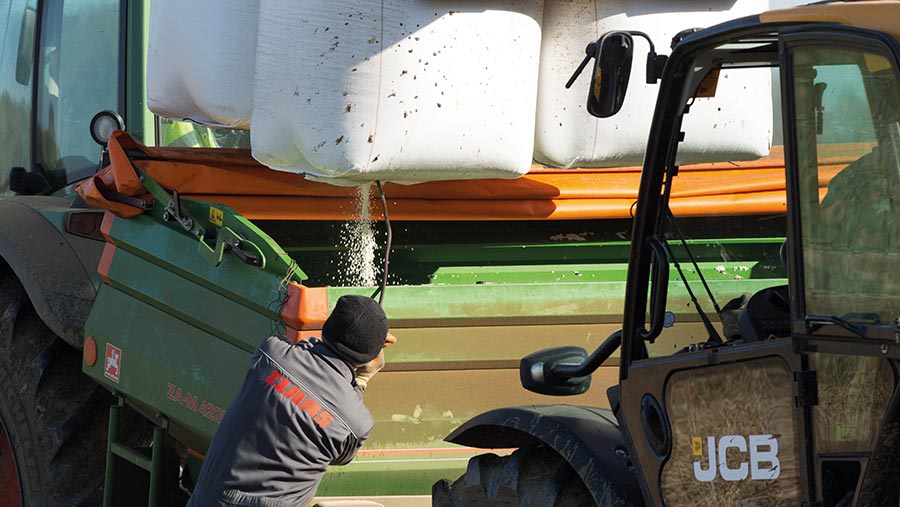FW Opinion: Input inflation set to put dent in farmer margins
 © Tim Scrivener
© Tim Scrivener There is a picture doing the rounds on social media of a man on bended knee before an attractive young woman with the caption “Impress her…. with something expensive”.
Instead of the anticipated diamond engagement ring, however, the would-be suitor is offering her a bag of NPK fertiliser from CF Industries, complete with the catchphrase “Reassuringly British”.
It’s a poignant image – though in truth he could be presenting her with any number of farm inputs.
Glyphosate, red diesel, certified seed, livestock feed, wire, plastic, tyres – you name it, just about everything a farmer needs to keep the wheels in motion is costing more, often substantially more.
And that’s if you can get hold of the stuff in the first place.
The problems in the food supply chain and, indeed, many other supply chains, have been attracting widespread media attention of late – not least for the pig sector, where the much talked about cull of healthy animals is gathering momentum.
See also: NFU president sends rallying cry to fight for farming
Beyond that, ammonium nitrate is now clearing £600/t, tractor fuel has almost doubled in price since last year, and poultry feed is pushing £300/t – up more than 25%.
Prime minister Boris Johnson has dismissed it all as “stresses and strains” as the country adjusts to the post-Brexit market reality.
His vision for a “high-wage, high-skill, low-tax economy” might be commendable, but it’s certainly not achievable in the short or probably even the medium term.
No amount of wage inflation is going to help if the labour is not there, or if indigenous workers are not interested in picking field vegetables or cutting up animals in abattoirs.
The meat sector is said to have put up butchers’ wages by 15%, yet the shortage persists.
Defra secretary George Eustice, addressing the closed session of this week’s NFU council, reportedly brushed off farmers’ concerns about inflationary pressures, pointing instead to the high commodity prices for the things they sell.
There is no denying that this helps. But the cost squeeze is intensifying, putting a nasty dent in margins – if not now, then certainly in a few months’ time – and that’s before the cuts in BPS scheduled for this December start to hit English farmers.
The effect on industry morale is palpable – as is evidenced by the latest Royal Agricultural Benevolent Institution (Rabi) wellbeing survey of 15,000 farmers.
The charity tries to put a positive spin on it, noting that “more than 50% remain optimistic”, while “59% believe their business is viable over the next five years”.
But that leaves an awful lot of people who do not feel that way, and the survey reveals some very worrying other indicators.
For example, it shows that 36% of the farming community are “probably or possibly depressed”, while more than half (52%) “experience pain or discomfort” in their daily lives. Those are alarming statistics.
Finding solutions to farming’s problems is not going to be easy – especially as the government seems doggedly opposed to upping the availability of workers, or subsidising some basic raw materials such as gas or energy, or delaying cuts to farm support.
So, what chance of respite from the top end of the food chain? Retailers are notoriously reluctant to pass on any cost increases to consumers – especially when some shelves are already empty.
But unless they start to put a higher value on food, and unless the government takes the current challenges a little more seriously, there is real danger domestic supply chains will crumble, taking the nation’s food self-sufficiency with it.

